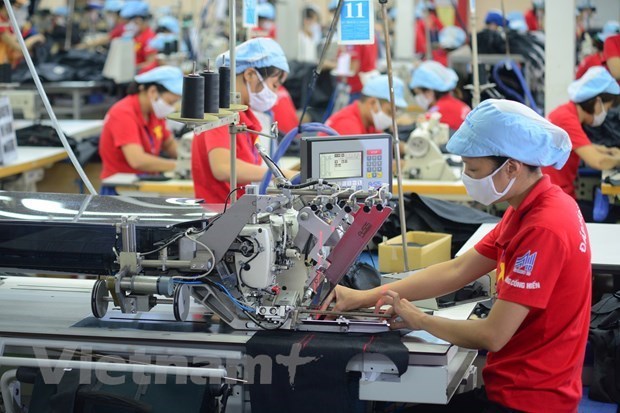ASEAN on economic rebound: Eurasia Review
While many parts of the world are faltering on the edge of recession, the Association of Southeast Asian Nations (ASEAN) in the first half of 2022 has been on an economic rebound, according to Eurasia Review.
 A garment factory in Vietnam (Photo: VNA)
A garment factory in Vietnam (Photo: VNA)In its article, the journal cited the forecast by the World Bank (WB) as showing that GDP in Vietnam, the Philippines, and Malaysia will grow in excess of 6%, while growth rates of Indonesia and Cambodia are expected around 5%. Singapore, Thailand, Laos, and Myanmar are all expected to grow around the 3% mark.
Most of this grow has been underwritten by the strong expansion of exports and a resurgence of local demand and investment. There is massive urban development occurring across the region, with tourism very quickly rebounding after travel restrictions have been lifted. The streets are now vibrant with crowded markets and restaurants due to a new consumer confidence.
The major economic shift within ASEAN is the growing level of intra-ASEAN trade and investment. This is where the ASEAN grouping may be partly protected from any world economic downturn.
In the short-term ASEAN has a buffer against any upcoming international recession. Most economic analysts still believe ASEAN will remain relatively buoyant over the next year.
However, some of the ASEAN countries are facing a number of potential problems. Although exports have been rapidly growing in Indonesia, Malaysia, and Vietnam, the international economic slowdown could dampen demand later in the year and 2023.
Weakening currencies, increasing public and private debt, rising energy costs, and a massive expansion of the money supply over the last two years has fuelled a bout of inflation.
ASEAN’s economic resurgence has created some chronic labour shortages in Singapore, Malaysia, and even Thailand. This could hamper potential construction and manufacturing growth, if these issues are not resolved.
The challenges ahead for ASEAN will be keeping debt and inflation in control, dealing with lower export and foreign investment growth, dealing with eroding currency exchange rate rates, and another bout of foreign currency speculation, if the world goes into a deep recession./.












